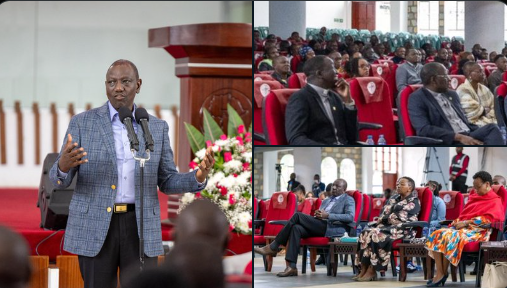President William Ruto faced an unusual scenario during a church service at AIC Milimani, where he addressed a congregation with several empty seats.
The low turnout was attributed to poor mobilization and increasing public dissatisfaction, particularly due to the controversial Finance Bill 2024.
Ruto has traditionally drawn large church crowds, often relying on these settings to convey his political messages.
However, this shift suggests a waning public interest, possibly fueled by growing frustrations over economic policies such as harsh taxation and unfulfilled promises.
Churches, which have been strongholds of support for Ruto in the past, are now being impacted by the broader social unrest.
Some congregants have become increasingly vocal about the rising cost of living and are more hesitant to engage in political discussions in religious spaces.
This reflects a deeper societal discontent with the government’s handling of economic challenges and the perception that political leaders are using religious platforms for their agendas.
In a similar instance, President Ruto faced backlash from attendees at other church functions, signaling a broader decline in the support he once enjoyed from religious communities, particularly after his administration implemented the Finance Bill 2024


